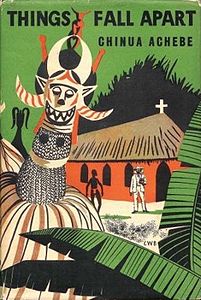Michigan State University’s Department of History and African Studies Center 
will hold a four-week NEH Summer Institute from July 12 to August 7, 2015 for 25 high school world history teachers to help them improve their teaching about Africa’s central, but often not recognized, place in World History.
“Those who use their teeth for climbing know which trees are bitter”: Intellectual Rationale, Institute Themes, and Periods of Focus
During the last decade, there has been an encouraging upsurge in awareness of the importance of Americans learning about world history. The rapidity of the rise in demand for studying world history in our nation’s high schools has created a complex challenge: training teachers, often without real institutional support, to offer a subject that, in many cases, they themselves did not study in college.
African history, in particular, has been a long-standing lacuna in American education. Consequently, there is a need for high-quality professional development opportunities that bring together scholars of African history and high school teachers for discussions of recent trends in the study of Africa’s past and how to overcome multiple misimpressions of this decidedly complex continent and integrate Africa into big questions and themes of world history.
Moreover, high school teachers face the extraordinarily difficult task of gaining an understanding of broad themes in history that can be conveyed to students in a survey course of the entirety of world history, and to do so in a short amount of time. By providing participants with a comprehensive overview of Africa’s place in world history, the Institute will help high school teachers meet this very real challenge.
The Institute’s primary goal will be to increase the capacity, commitment, and enthusiasm of world history teachers to engaging instruction of Africa in their classrooms. To accomplish this goal, the Institute will introduce high school educators to important content about Africa’s significance in world history. It will reflect both recent trends in research in African history and high-quality standards for teaching world history, including: a) National Standards in History (Part Two): World History, established by the National Center for History in the Schools, which has served as a template for more than 30 states; b) World History for Us All and c) the AP World History curriculum established by the College Board.
We have structured the Institute to create and foster a learning community among Institute participants and staff. Institute presenters will encourage—indeed expect—active engagement by the participants, as they collectively delve into innovative sources and methods that scholars are using to explore Africa’s place in world history. Participants will be exposed to a myriad of documentary texts, literature, images, music, food, art, film, oral histories, and data sets that are available to engage their students in learning about Africa.
Specifically, the Institute will focus on three distinct and important themes—gender, religion, and politics—as a segue into our exploration of Africa’s internal dynamics as well as the processes by which the continent became integrated into the larger world system. These themes capture six of the seven key themes for high school world history in the integrative approach taken by World History for All of Us and all four themes for AP World History. Because the continent of Africa is so vast and the experiences of Africans so diverse, case studies will be drawn from West, East, Central, and Southern Africa to offer an overview that will provide a narrative of one or more of these three themes. The Institute will be divided into three units or “Big Eras,” as defined by U.S. high school national world history standards: a) “Africa Before the Europeans: Indigenous Institutions and Knowledge Systems” (corresponding to Big Eras One and Four); b) “Encounters with Africa: The Slave Trades and the Integration of Africa into the World Economy” (Big Eras Five and Six); c) “Colonial Encounters: The Empire Writes and Fights Back!” (Big Eras Seven and Eight). Each unit will explore the interplay between the internal and external socio-economic, political, and religious forces operating in and around Africa.
